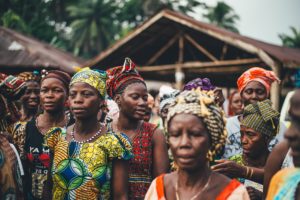Blog
Who Knows Best? Unpacking the Idea of an ‘Expert’
Written by Aly Passanante
December 9, 2019
Over breakfast, a Ugandan government worker scoffed at the idea of international ‘experts’ coming to solve a crop yield issue. “A foreigner with a degree in agriculture isn’t the expert. The expert is the old man who farmed here his whole life,” he said, taking a sip of caai.
Power imbalances in research, development, and humanitarian contexts is not a new concept. Our determination of who or what is a credible source, whose education is valued, and what type of education ‘counts’ is deeply problematic and skewed in favour of those with more power. We often discount ordinary people’s knowledge as ‘popular thought’ and fail to recognise its impact on development initiatives.
Local Communities
Local communities certainly know best what their biggest challenges are, how they should be prioritised, and the appropriate solutions. What may be lacking, however, is the funding, skills, or resources to put those plans into action. It is here where government and international support is most beneficial.
Local knowledge is equally important to the success of a borehole, for example, as the engineering skills required to construct it. That is, communities know whose local approval is needed, where the borehole should be placed for easiest access, whom will be responsible for maintenance, and how borehole usage should be regulated to ensure fairness during dry seasons. Otherwise a technically successful project may fail soon after implementation.
Similarly, during the Ebola outbreak in Sierra Leone, much of the resistance and containment efforts happened at the grassroots level, which often went unacknowledged. While international collaboration and funding was requisite for ending the outbreak, the role of community care systems, compassionate family members, and village-level initiatives received limited attention.
Role of Trust
This is not to devalue higher education or suggest that people shouldn’t work outside their home countries. It also doesn’t mean that local communities always know best or have sufficient information. Rather, we must critically rethink what it means to become an ‘expert’ and, importantly, a trusted expert. In some cases, trust is derived from the most prestigious degrees. More often, however, trust is the product of long-term relationships and a history of reliability. This favours community leaders and individuals who demonstrate accountability and commitment to a cause and place.
It also suggests that spending the time on developing trust is an essential aspect of any development project. All of the skills and knowledge in the world is useless if not trusted and implemented on the ground.
Moving Forward
The unsurprising conclusion is that everyone is specialised in certain ways and, importantly, to a certain extent. Multi-sectoral and multi-level collaboration is crucial for nuanced initiatives producing successful and sustainable results. Furthermore, international technical teams should collaborate with local technical teams, sharing knowledge and learning from each other.
Yet while the voices at the table must be diverse, the final say should come from those most affected. Thus, participation must be genuine and occur at all phases of a project cycle. And, crucially, local and international experts alike must build and strengthen trust in order for projects to succeed. In order to advance international development initiatives, we must rethink whom qualifies as an ‘expert’ and expand the definition to include a wider array of experiences and knowledge.
Former LIDC intern, Aly Passanante, has just finished an MSc in Violence, Conflict and Development at core LIDC member, SOAS University of London.

